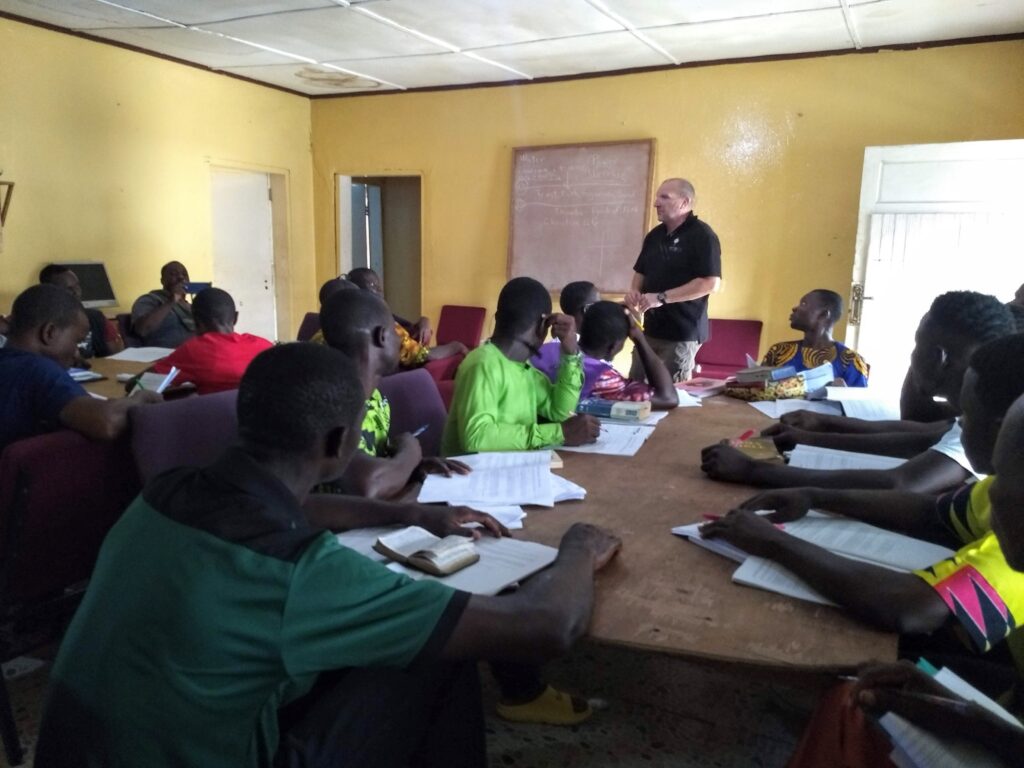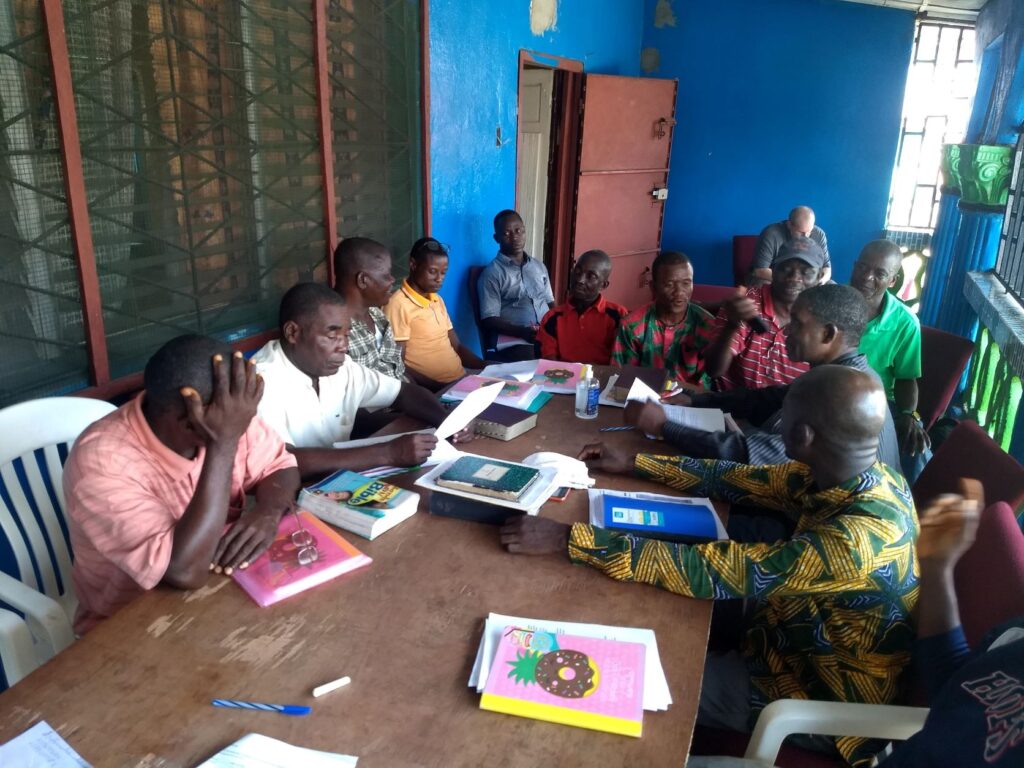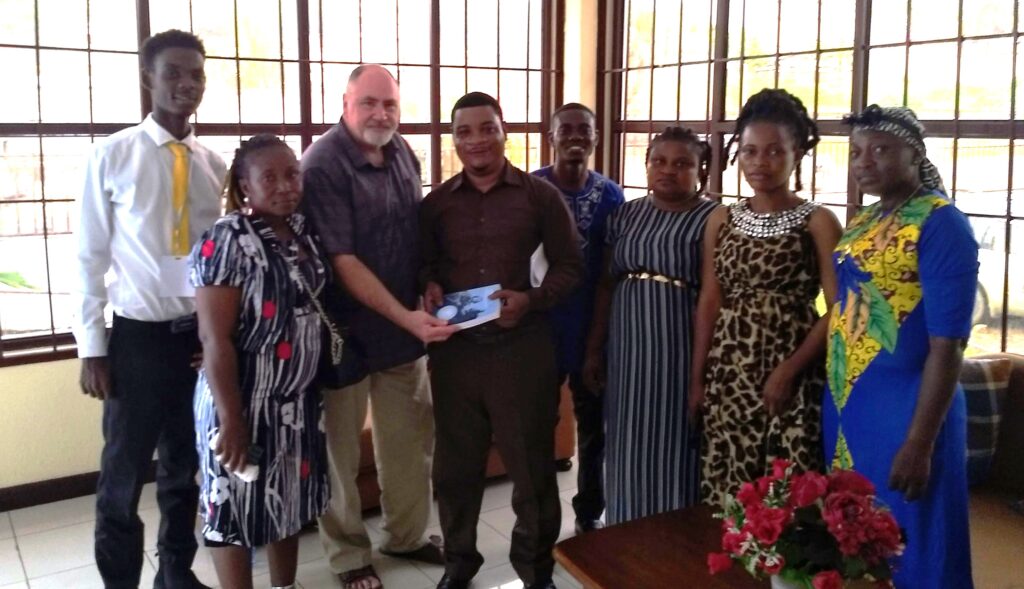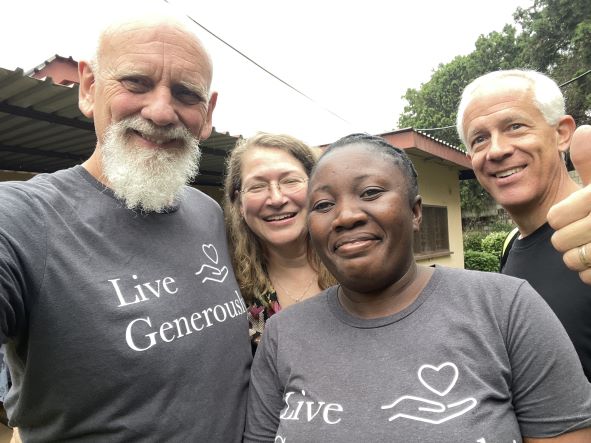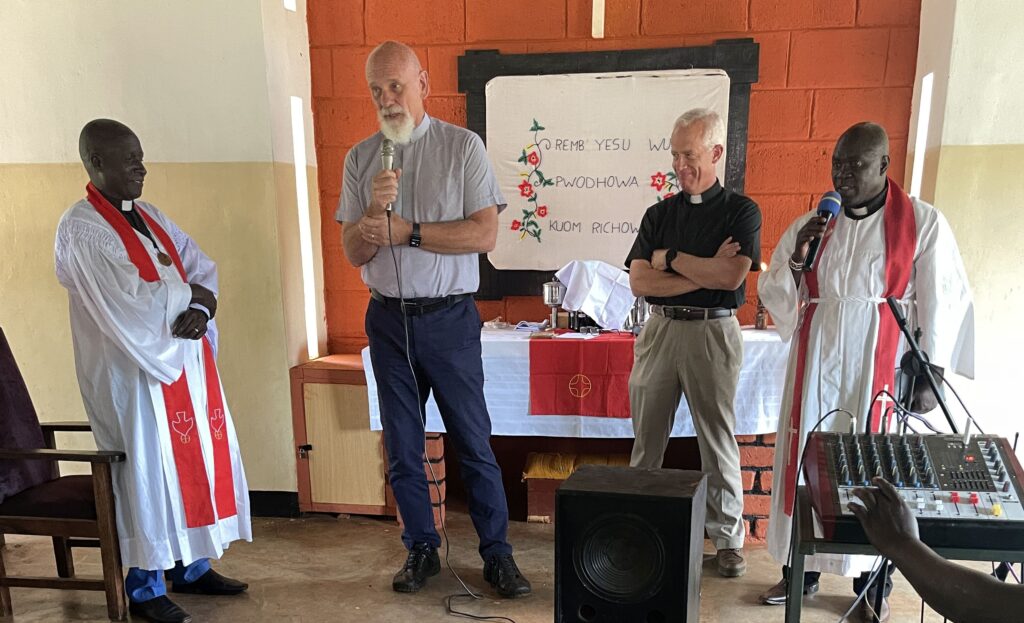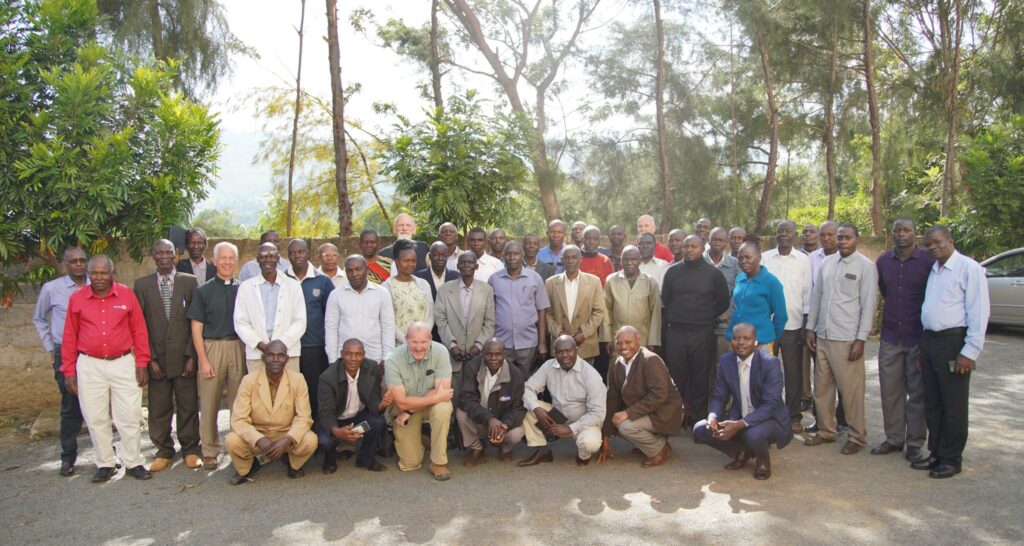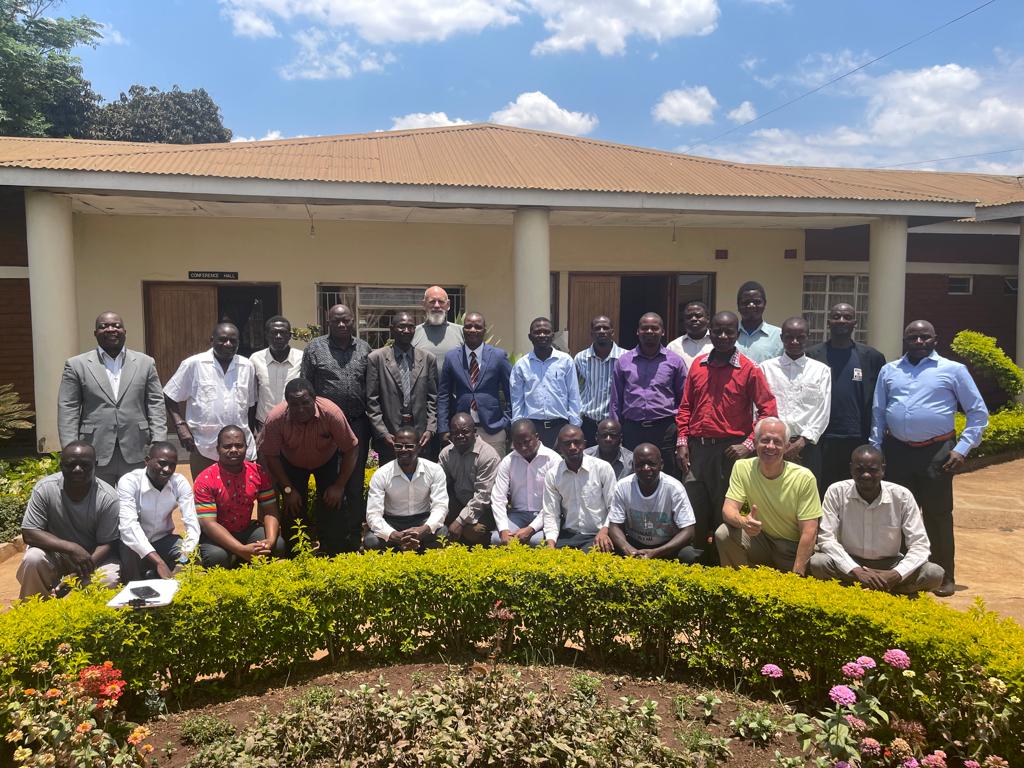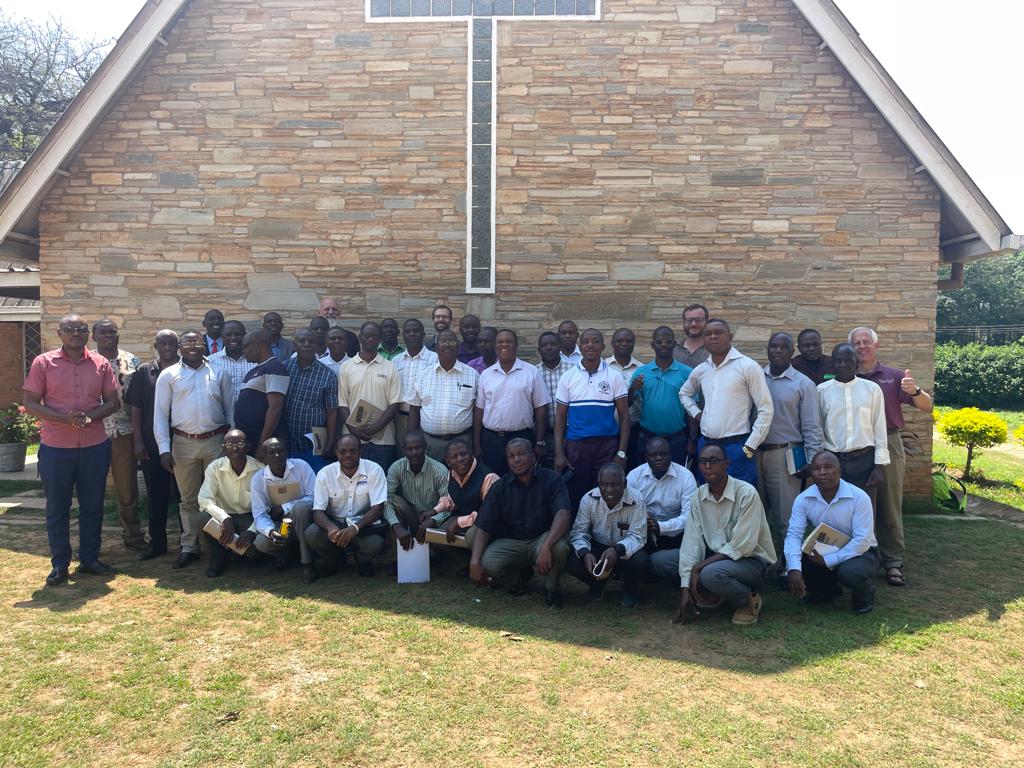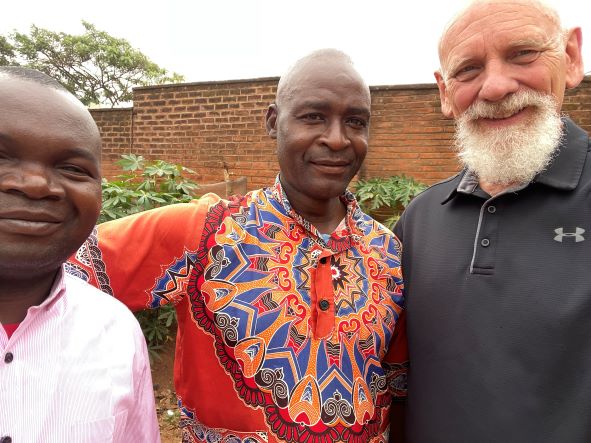Count the Stars
“Look up at the sky and count the stars” – Genesis 15:5 (NIV)
Uganda is a special place—“The Pearl of Africa,” they call it. It’s a beautiful country of rolling hills, mountains, and vegetation. The source of the Nile River is there, bubbling up from underneath Lake Victoria. During the day, my eyes couldn’t get enough of all that they were seeing.
It was when the sun went down, though, that I saw and was reminded of something even more beautiful.
Far from the city, the light burns brightly
My colleague, Pastor Keegan Dowling, and I had the privilege and honor of traveling to Uganda just before Christmas to teach about the life of Jesus to a group of pastors, evangelists, and lay leaders in the Obadiah Lutheran Synod (OLS). The OLS is a church body with whom WELS will be declaring formal fellowship during its 2023 synod convention. The workshop took place on the property of the church president, Pastor Musa (Moses), located in a village away from modern conveniences. The only electricity around was produced by a generator sparingly after night fell. This might not sound very pleasant, but it revealed something often hidden from our eyes.

The night sky…
Seeing that sky and the starlight that pierced its veil is something I will never forget. Thousands upon thousands of the great starry hosts twinkled above us, casting their soft light and dispersing the gloom. I couldn’t help but be reminded of the conversation God had with Abraham about the stars… “Look up at the sky and count the stars—if indeed you can count them…So shall your offspring be” (Genesis 15:5).
Pastor Dowling and I were blessed to be introduced to about 40 of those believing stars at this workshop. We taught many stories from the life of Jesus, from his birth to his ascension, and these stars soaked it up. Then they showed us their own capacity for light-bearing as they taught and retaught the same lessons in our practical sessions. Our goal was not only to teach them more about Jesus but to teach them to teach their people more about Jesus.
Who could have guessed that we would meet some of Abraham’s descendants in this remote village in a country halfway around the world from the home we knew? Jesus can count the stars.
Count the stars of Jesus
He knew he’d be introducing me to Tony, a persistent optimist and a man trained to be an educator. He sees many challenges facing their church body (lack of Bibles, for one), but he sees more opportunities for doing gospel ministry. He wants to give Bibles away, show films about Jesus to the community, start a Lutheran school for children, travel to Sudan to do missionary work there, and more.

Jesus knew about Jaka, a refugee from South Sudan due to the war going on there. He lives and serves in a refugee camp on the Ugandan side of the border. Jaka lives separated from his parents. In spite of his experiences, he praises and glorifies God. He also keeps his sense of humor and was often the one making everyone laugh.
Jesus introduced me to another star, Isaac, one of the few men there who has been seminary trained. He had been doing work with another church in Uganda, but eventually left for doctrinal reasons and has been in touch with WELS for some time. I was privileged to be part of the meeting where he and his two companions officially requested to become a part of the OLS in Uganda. Three others who weren’t able to make it to the workshop will also be joining. More stars…
Finally, Jesus knew about Pastor Musa, the current president of the OLS, shining brightly for all of them. He and two others started this church body back in 2008. They had neither congregations nor resources. Today, the OLS has nearly 30 congregations in spite of still having very few resources. Their motto has often been: “We will make use of whatever resources are available.” That goes for money and people as well. Many of the workshop participants were young, in their late teens or early twenties, and they had very little training. But Musa is determined to train them and have their gifts put to use to teach the people in their congregations. That way the light of Jesus may shine all the more brightly, and more and more stars of Abraham might make themselves known as they pierce that blanket of night.
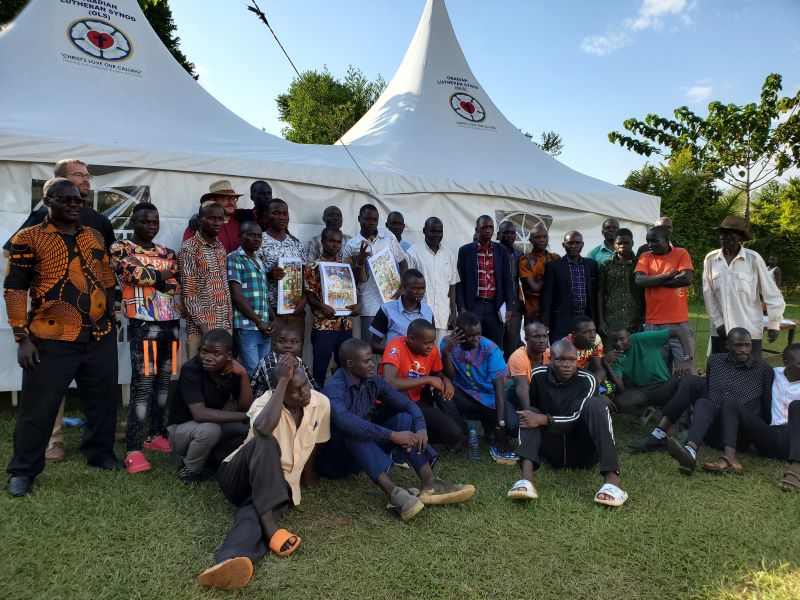
As you look up at the night sky, wherever you are, count the stars you so often can’t see. Count these descendants of Abraham who shine with the light of Jesus. Pray that our Savior would cause them to burn ever more brightly, that the whole world may be bathed in the light of God’s fulfilled promise to Abraham.
Missionary Ben Foxen lives in Zambia and coordinates One Africa Team’s Outreach efforts.
Please pray for those working in fields that are ripe for harvest. Share their story, engage with future news and receive updates. Learn more about our mission fields in Africa and how the Holy Spirit is working faith in people’s hearts at https://wels.net/serving-others/missions/africa
